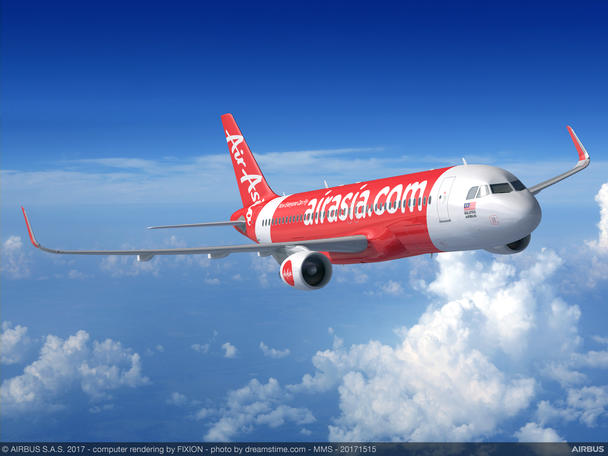AirAsia to introduce Airbus’ Descent Profile Optimisation to A320ceos

Kuala Lumpur, 2 June 2022 – AirAsia is to install Airbus’ “Descent Profile Optimisation” (DPO) function to its A320ceo aircraft. The enhancement to the aircraft’s on-board Flight Management System (FMS) performance database offers the ability to generate fuel savings and reduce CO2 emissions.
Optimisation of an aircraft’s flight trajectory is one of the key factors to further improve efficiency in cooperation with Air Traffic Control. The DPO function allows aircraft to descend from cruise altitude using only idle engine thrust, which reduces fuel consumption, resulting in proportional CO2 and NOx (nitrogen oxide emissions) reductions.
To further enhance fuel reduction, DPO maximises the time spent at efficient cruise level – by not starting the descent too early and subsequently minimising the amount of time spent at an inefficient ‘level-off’ stage at the bottom of the descent – when the aircraft’s engines generate thrust to maintain level flight in dense air prior to final landing approach.
“When installed on the A320ceo aircraft, the DPO solution will help AirAsia achieve over 100 tons of fuel savings per aircraft, per year, enabling even more efficient operations particularly at constrained airports. In addition, DPO will help us reduce CO2 emissions by over 220 tons per aircraft, per year, allowing AirAsia to contribute towards more sustainable flight operations,” said Bo Lingam, Group CEO of AirAsia Aviation Limited.
DPO is one of the several flight operations optimisation solutions offered by Airbus and can be complemented by IDLE Factor Optimiser (IFO), a cloud based solution service offered by flight operations services subsidiary Navblue, to optimise aircraft performance. Together with improved Air Traffic Management, these fuel savings solutions enable operators in their decarbonisation journey.
Your contact
Aaron Chong
Communications - Airbus Asia-Pacific


